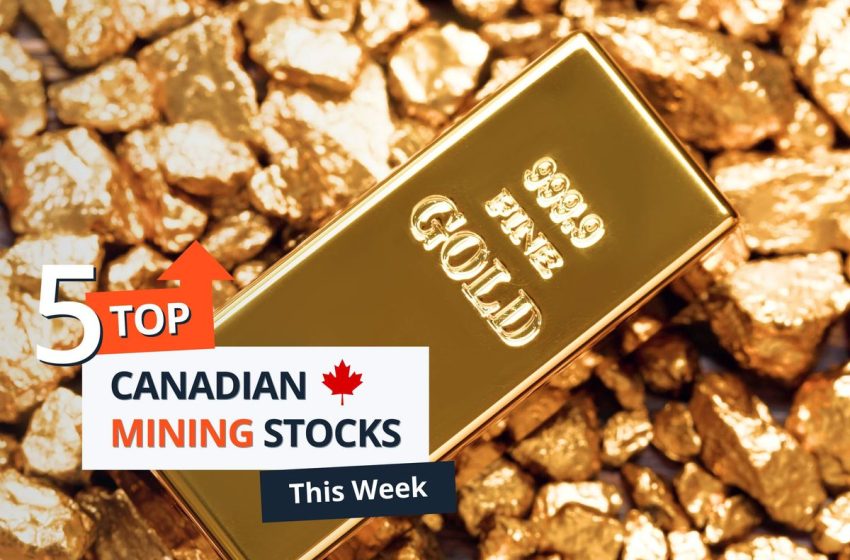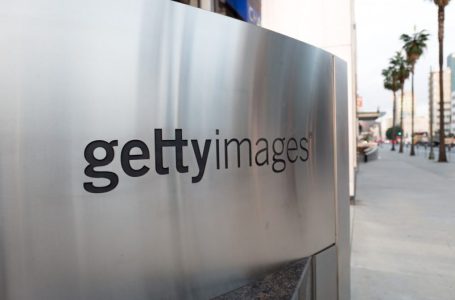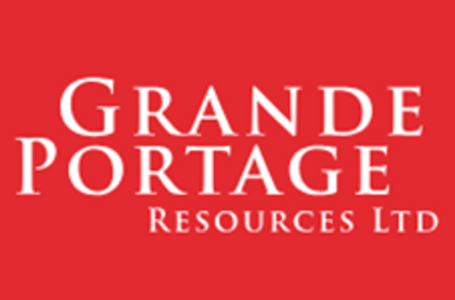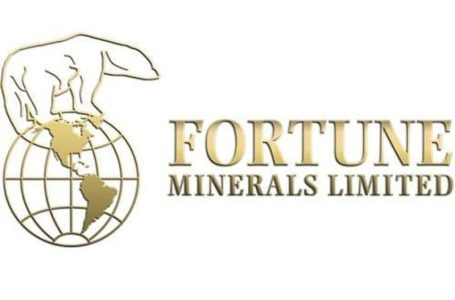Top 5 Canadian Mining Stocks This Week: O3 Mining Up 60 Percent on Agnico Eagle Takeover Deal

The S&P/TSX Venture Composite Index (INDEXTSI:JX) fell 1.12 percent on the week to close at 607.84 on Friday (December 13). Meanwhile, the S&P/TSX Composite Index (INDEXTSI:OSPTX) posted a 1.71 percent decrease to hit 25,274.3, and the CSE Composite Index (CSE:CSECOMP) sank 2.68 percent to reach 131.45.
The US Bureau of Labor Statistics released November consumer price index (CPI) data on Wednesday (December 11).
The report shows the all-items index increased by 0.3 percent monthly, compared to the 0.2 percent recorded in each of the previous four months. Core CPI was also up 0.3 percent, steady compared to the previous three months.
On an annualized basis, CPI increased by 2.7 percent, up from the 2.6 percent rise recorded in October. Core CPI, which excludes food and energy, was unchanged from October, increasing 3.3 percent.
Overall, the increase in the CPI shows some stickiness in inflation, but most analysts think the US Federal Reserve will cut interest rates by 25 points when it meets on December 17 and 18, before pausing in the new year.
In the commodities space, gold passed US$2,700 per ounce midweek, but finished the period virtually unchanged at US$2,648.34; silver sank 1.43 percent to US$30.54 per ounce. Copper lost just 0.23 percent for the week at US$4.20 per pound on the COMEX. More broadly, the S&P GSCI (INDEXSP:SPGSCI) was up 2.83 percent to close at 546.29.
Equity markets were mixed this week. The S&P 500 (INDEXSP:INX) fell 0.52 percent to end Friday at 6,051.08, while the Nasdaq-100 (INDEXNASDAQ:NDX) gained 0.96 percent to come in at 21,780.25. Meanwhile, the Dow Jones Industrial Average (INDEXDJX:.DJI) finished the week down 1.81 percent at 43,828.07.
Find out how the five best-performing Canadian mining stocks performed against that backdrop.
Data for this article was retrieved at 4:00 p.m. EST on December 13, 2024, using TradingView’s stock screener. Only companies trading on the TSX, TSXV and CSE with market capitalizations greater than C$10 million are included. Companies within the non-energy minerals and energy minerals sectors were considered.
1. Orosur Mining (TSXV:OMI)
Weekly gain: 88.89 percentMarket cap: C$28.27 millionShare price: C$0.16
Orosur Mining is an explorer focused on the development of early to advanced-stage assets in South America.
Its flagship Anzá gold project in Colombia was previously a 49/51 joint venture with Minera Monte Aguila (MMA), a corporation owned equally by Newmont (TSX:NGT,NYSE:NEM) and Agnico Eagle Mines (TSX:AEM,NYSE:AEM).
Exploration has revealed multiple gold deposits at the site, which is located 50 kilometers west of Medellin, and according to Orosur sits along Colombia’s primary gold belt.
Orosur also owns several early stage projects: the El Pantano gold-silver project in Argentina, the Lithium West project in Nigeria and the Ariquemes project in Brazil, which is prospective for tin, niobium and rare earths.
Shares of Orosur jumped significantly following a November 28 announcement that it has completed its takeover of MMA. The acquisition gives Orosur 100 percent indirect ownership of the Anzá gold project.
Under the terms of the agreement, Newmont and Agnico will each receive a 0.75 percent net smelter royalty, plus a fixed royalty of US$37.5 per ounce of gold or gold equivalent on the first 200,000 ounces produced.
Since the transaction’s completion, exploration has resumed at the Pepas prospect to test high-grade results from a 2022 drill program. On Friday, Orosur announced the delivery of initial assays, saying they confirm the previous results. The samples encountered grades of 5.58 grams per metric ton (g/t) gold over 75.1 meters from the surface, including an intersection of 13.68 g/t over 13.95 meters.
2. NOA Lithium Brines (TSXV:NOAL)
Weekly gain: 80.65 percentMarket cap: C$34.59 millionShare price: C$0.28
NOA Lithium Brines is advancing three projects in the lithium triangle area of Argentina’s Salta province: the 37,000 hectare Rio Grande project, the 78,000 hectare Arizaro project and the 10,200 hectare Salinas Grandes project.
Of the three projects, Rio Grande is the most advanced. The company updated the resource estimate for the site in July, noting that measured and indicated resources had increased to 2,658,000 metric tons of lithium carbonate equivalent, with 2,039,000 metric tons of lithium carbonate equivalent in the inferred category.
Shares of NOA gained this week after the company said on Tuesday (December 10) that it has closed a C$13.5 million private placement with Clean Elements, a private holding company established to develop lithium assets. If Clean Elements exercises all warrants, it will receive 39.9 percent of outstanding common shares on a fully diluted basis.
NOA plans to use the proceeds of the offering to pay off debts and fund exploration work at Rio Grande.
3. O3 Mining (TSXV:OIII)
Weekly gain: 60.19 percentMarket cap: C$179.47 millionShare price: C$1.65
O3 Mining is a gold explorer and developer working to advance its assets in Québec, Canada.
The company’s Marban Alliance gold project is composed of 65 mining claims covering 2,189 hectares in Western Québec. Exploration at the site dates back to the 1940s and has seen drilling to a depth of 1,475 meters.
A prefeasibility study from 2022 outlines a pre-tax net present value of C$775 million for the asset with an internal rate of return of 30.2 percent and a payback period of 3.5 years.
O3 also owns the Horizon project, made up of 192 claims over 8,778 hectares directly to the northwest of Marban.
Shares of O3 jumped this week following news on Thursday (December 12) of a friendly takeover offer by major miner Agnico Eagle Mines. The offer, valued at C$204 million, will see Agnico Eagle purchase all outstanding common shares in O3 at C$1.67 each, a 58 percent premium to the closing price on December 11.
The news was followed on the same day by a joint announcement that O3’s largest shareholder, Gold Fields (NYSE:GFI), will support the transaction through a lock-up agreement with Agnico to tender its common shares in O3. Gold Fields owns approximately a 17 percent stake in O3.
4. KWG Resources (CSE:CACR)
Weekly gain: 50 percentMarket cap: C$19.19 millionShare price: C$0.015
KWG Resources is a chromite and base metals exploration company focused on moving forward at its Ring of Fire assets in Northern Ontario, Canada. It does business as the Canadian Chrome Company.
The firm’s properties consist of the Fancamp and Big Daddy claims, along with the Mcfaulds Lake, Koper Lake and Fishtrap Lake projects. All are located within a 40 kilometer radius, and according to the company are home to feeder magma chambers containing chromite, nickel and copper deposits.
KWG is currently working with local First Nations to improve transportation to the region through the development of road and rail links. The company announced on November 7 that it had signed a memorandum of agreement with AtkinsRealis Canada in its capacity as a contractor representing the Marten Falls and Webequie First Nations.
The agreement will allow AtkinsRealis temporary access rights over some mineral exploration claims in support of work permits for an environmental assessment for the design, construction and operation of a multi-use, all-season road between the proposed Marten Falls community access road and the proposed Webequie supply road.
Once completed, the link will provide improved access to communities and mining companies in the region.
KWG did not release any news in the past week.
5. Vior (TSXV:VIO)
Weekly gain: 47.06 percentMarket cap: C$48.91 millionShare price: C$0.25
Vior is a gold exploration company with a portfolio of assets located in Québec, Canada.
The company’s main focus has been advancing its flagship Belleterre project in Southwestern Québec. The property consists of 635 claims covering an area of 350 square kilometres, and hosts the past-producing Belleterre gold mine, which produced 750,000 ounces of gold and 95,000 ounces of silver between 1936 and 1959.
Vior says that the mineralization trend at the property extends for 6 kilometers, and in addition to gold and silver has demonstrated the presence of copper, lead and zinc.
On September 24, Vior commenced a fully funded 60,000 meter drill program at Belleterre, which will operate through mid-2025. The company says it is the largest drill program at the site since the mine closed in 1959.
The first assays were announced on November 12, and the company reported high-grade gold at depth. The results include highlighted intercepts of 9 g/t gold over 1.2 meters from the Belleterre area, and 4 g/t gold over 1.2 meters from the Aubelle area. Vior said the results confirm the continuity and potential for expansion of mineralization at the site.
The company’s most recent announcement came on Thursday, when it announced that Mathieu Savard, Osisko Mining’s former president, will become Vior’s new president and CEO. He will be joined by Pascal Simard, who was Osisko’s vice president of exploration. Simard will hold the same role at Vior.
FAQs for Canadian mining stocks
What is the difference between the TSX and TSXV?
The TSX, or Toronto Stock Exchange, is used by senior companies with larger market caps, and the TSXV, or TSX Venture Exchange, is used by smaller-cap companies. Companies listed on the TSXV can graduate to the senior exchange.
How many companies are listed on the TSXV?
As of June 2024, there were 1,630 companies listed on the TSXV, 925 of which were mining companies. Comparatively, the TSX was home to 1,806 companies, with 188 of those being mining companies.
Together the TSX and TSXV host around 40 percent of the world’s public mining companies.
How much does it cost to list on the TSXV?
There are a variety of different fees that companies must pay to list on the TSXV, and according to the exchange, they can vary based on the transaction’s nature and complexity. The listing fee alone will most likely cost between C$10,000 to C$70,000. Accounting and auditing fees could rack up between C$25,000 and C$100,000, while legal fees are expected to be over C$75,000 and an underwriters’ commission may hit up to 12 percent.
The exchange lists a handful of other fees and expenses companies can expect, including but not limited to security commission and transfer agency fees, investor relations costs and director and officer liability insurance.
These are all just for the initial listing, of course. There are ongoing expenses once companies are trading, such as sustaining fees and additional listing fees, plus the costs associated with filing regular reports.
How do you trade on the TSXV?
Investors can trade on the TSXV the way they would trade stocks on any exchange. This means they can use a stock broker or an individual investment account to buy and sell shares of TSXV-listed companies during the exchange’s trading hours.
Article by Dean Belder; FAQs by Lauren Kelly.
Securities Disclosure: I, Dean Belder, hold no direct investment interest in any company mentioned in this article.
Securities Disclosure: I, Lauren Kelly, hold no direct investment interest in any company mentioned in this article.









